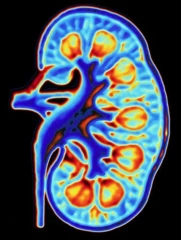Studies have found that MAPK activity is involved in regulating cell adhesion to achieve cell movement and morphogenesis

Studies have found that MAPK activity is involved in regulating cell adhesion to achieve cell movement and morphogenesis

Copyright © iCell Bioscience Inc, Shanghai 2018-2019 All rights reserved
The prevalence of kidney disease is rapidly increasing due to an increase in the incidence of diseases such as population aging and diabetes. In addition, renal dysplasia is one of the most common congenital defects and can affect the development of subsequent kidney disease. Currently, the only treatment for kidney disease is dialysis and transplantation, but due to inadequate donor organs and expensive treatment, kidney disease mortality is higher than most cancers.
The development of new methods for the diagnosis and treatment of kidney disease requires an understanding of the mechanisms that regulate kidney development. Researchers at the University of Helsinki found that the MAPK signaling pathway involved in cancer development is involved in the development of the kidney.

The MAPK pathway mediates cellular responses to extracellular growth factor stimulation and regulates transcription of genes. In the cytoplasm, it regulates the activity of many different proteins. The study found that MAPK activity is not only required for the normal proliferation and differentiation of nephron progenitor cells, but also mediates interaction with peripheral renal progenitor cells.
The results show that MAPK activity is involved in the regulation of cell adhesion to achieve cell movement and morphogenesis, which affects the process of body development.
MAPK activity modulators have long been used in the treatment of cancer patients. This new result brings hope to the development of stem cell regenerative therapy for patients with kidney disease.
 Loading ....
Loading ....
